Coronavirus: RSPCA fears a surge of pet abandonments
- Published
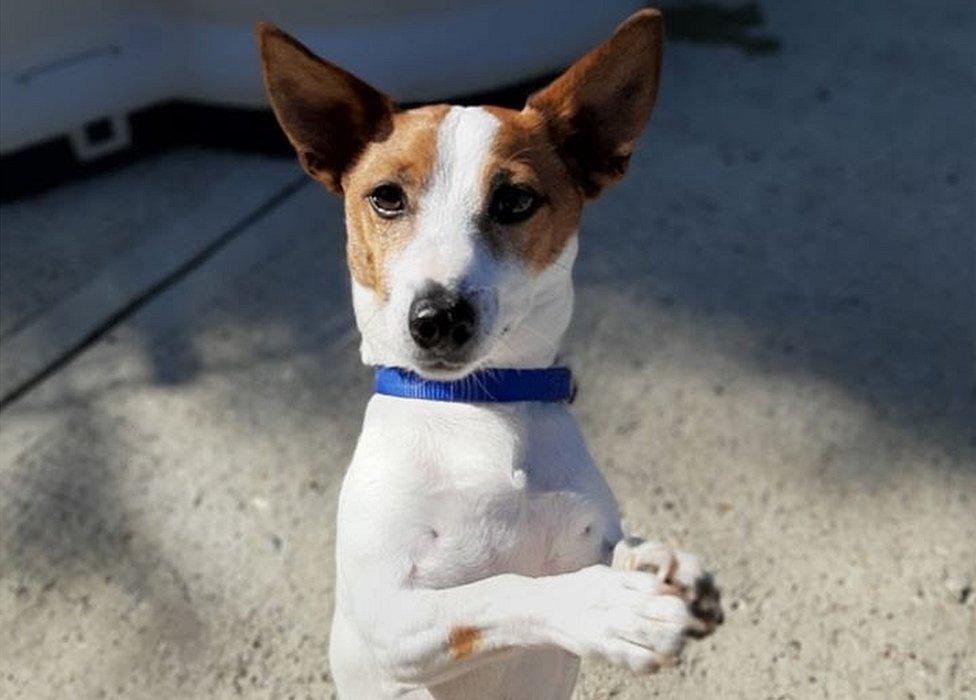
Jack Russell Smudge - who could clap his paws together - was the first dog at the centre to be rehomed during lockdown
About 40 pets a day are being abandoned across England and Wales, the RSPCA says. As the charity warns of further abandonments in the months to come, the BBC visited an animal sanctuary to learn more about the efforts being made to find new homes.
"We don't quite know what the future will hold." says Penny Skate, an RSPCA volunteer for the past 40 years.
The coronavirus pandemic seems to have done little to dent people's desires to take in a pet needing a home - but the RSPCA is still taking in as many animals as before.
Although officials hope more people working from home will mean more owners able to better look after their animals, they fear more people losing their jobs will mean fewer able to afford a pet.
In the past three months, more than 100 animals have been rehomed by the West Norfolk branch of the RSPCA in Tilney All Saints, near King's Lynn.
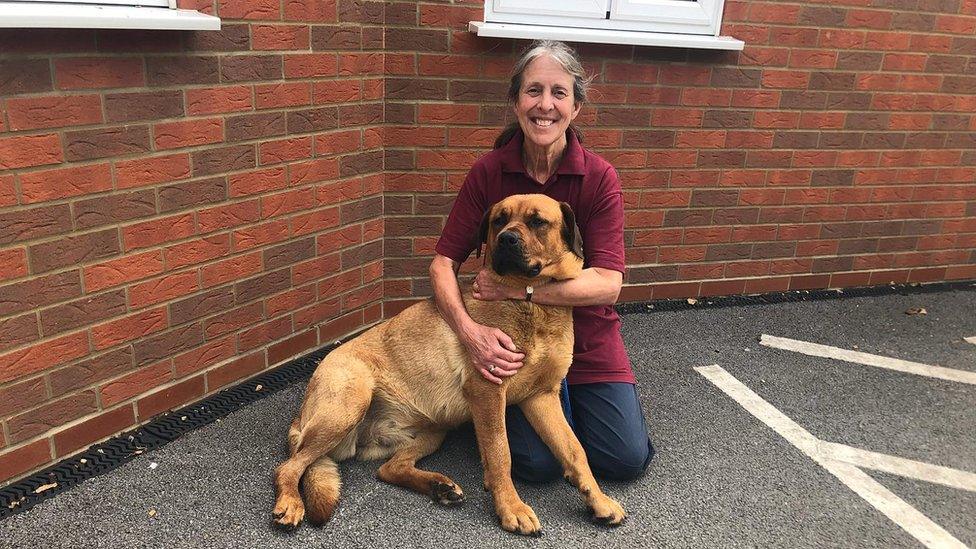
Penny Skate, an RSPCA volunteer for the past 40 years.
Ms Skate, who is also the branch's trustee chairman, said as many pets as possible were rehomed before the lockdown.
"We knew it was coming," she said.
"And we found the best thing was to get as many animals out as we could at the time. We had quite a few in the pipeline before lockdown.
"One of the surprising things about the lockdown was the lack of animals coming in during that period."
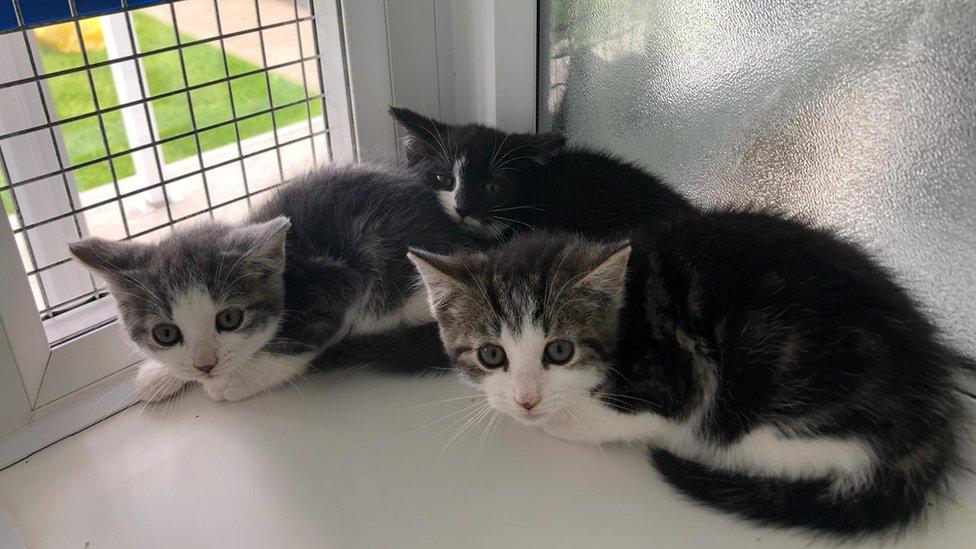
Since the lockdown started, the West Norfolk branch has rehomed 48 kittens
During the first month prospective owners could not meet potential pets. Instead they had to make decisions based on photographs and descriptions posted on the branch's website.
"It was very frustrating having animals desperate to find new homes and people wanting to take them, but that's where we were," said Ms Skate.
"We don't quite know what the future will hold."
After about a month into lockdown, Defra relaxed the rules on animal adoptions as long as various precautions were taken.
This meant would-be owners were able to meet an animal at the centre's car park, including Jack Russell terrier Smudge with a talent to clap his paws together, who was the first animal there to be rehomed during lockdown.
"We haven't got a list of animals waiting to come in, though I expect that will change when everybody is back at work and back to normal," said Ms Skate.
"I hope we don't, that is not what we want, but that is what usually happens."
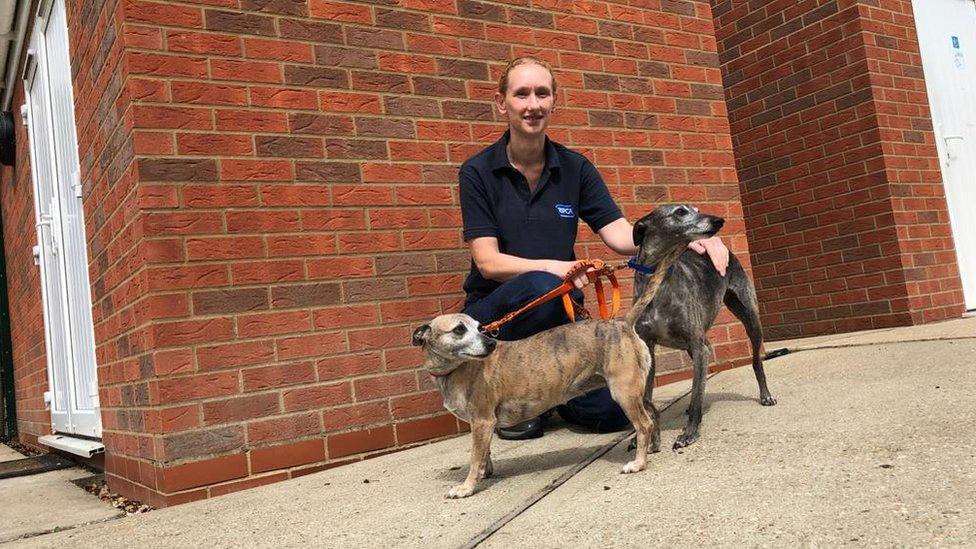
Rachel McClelland with mother and daughter Bella and Ellie, who have now been rehomed since being at the centre since February
That concern is shared by Jayne Bashford, the RSPCA's chief inspector for Cambridgeshire.
"We've seen 30% of our usual annual total for abandoned animals in just three months," she said.
"We currently have about 40 abandoned animals a day and it is across the board - dogs, cats, guinea pigs, rabbits and exotics such as snakes and lizards."
She said concerns about the future might be driving the spike in abandonments, as people decide they can no longer afford to keep a pet.
"We would always encourage anybody, without us making any judgement, that if people are struggling it is important that people first explore their local support networks such as family or friends if it is a short-term blip, and if it is not a blip then seeking assistance from a rehoming charity," said Ms Bashford.
"We are here to help."
You may also like:
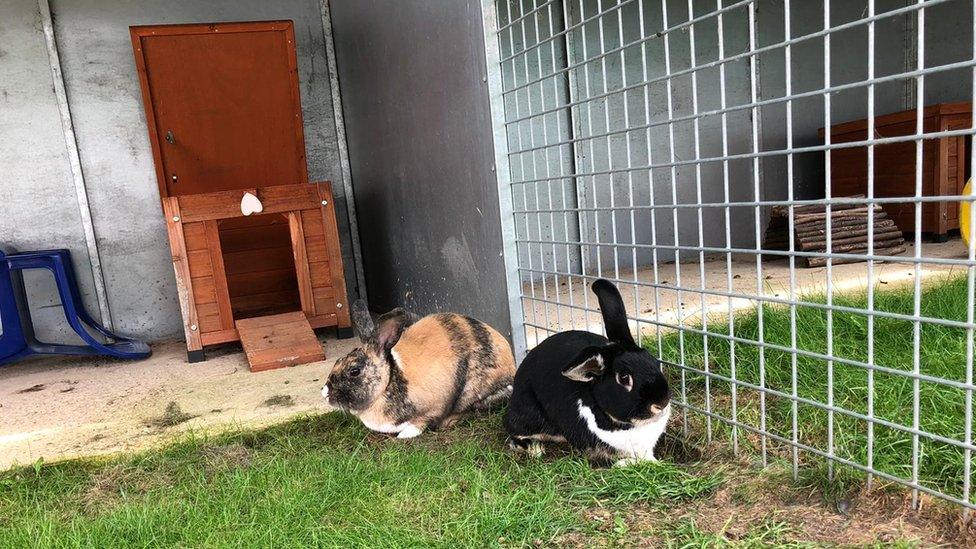
Volunteers at the centre say rehoming abandoned animals is "deeply rewarding"
At the West Norfolk branch Rachel McClelland, deputy senior animal care assistant, said the current system of car park visitations has been working well.
"Obviously we've not had people just walking in wanting to have a look around," she said.
"We also make sure everybody fills in an application form as we don't really want people coming to have a look who are not really serious about taking on an animal.
"We've been having people in the car park and taking dogs out to them and the general day-to-day running of the centre such as the cleaning or walking of the animals has to go on regardless of whether there are visitors or not."
Before the pandemic, staff would visit a prospective owner's home to check it was suitable.
While staff can visit and check fencing and gardens, they cannot enter homes. Instead they rely on images of the insides from those wanting to adopt.
Mother and daughter Bella, 10, and Ellie, five, are the dogs who have been at the centre the longest, having arrived there in February. They have now been reserved.
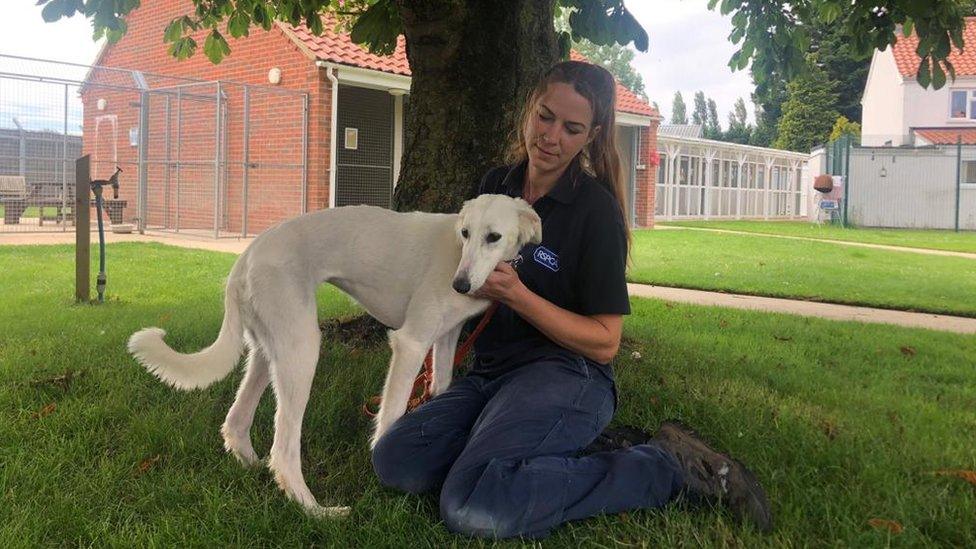
The newest canine arrival is Petal, a saluki-cross picked up by a dog warden two weeks ago
One of the newest arrivals is a young saluki-cross called Petal.
She was picked up about two weeks ago by a dog warden and has not yet been claimed by her owner.
But while the future of Petal and too many other animals nationally might seem uncertain, the team at west Norfolk say the satisfaction of rehoming them never diminishes.
"In all my years this has been the most rewarding period working with the RSPCA," says Ms Skate.
"Because it is just fantastic that in all the terrible times we've had and all the dreadful sadness that people have experienced, that we were were able to bring some sunshine into people's lives.
"And we will be able to cope with whatever is thrown at us."

SOCIAL DISTANCING: What are the rules now?
FACE MASKS: When should you wear one?
TESTING: Who can get a test and how?

Find BBC News: East of England on Facebook, external, Instagram, external and Twitter, external. If you have a story suggestion email eastofenglandnews@bbc.co.uk, external